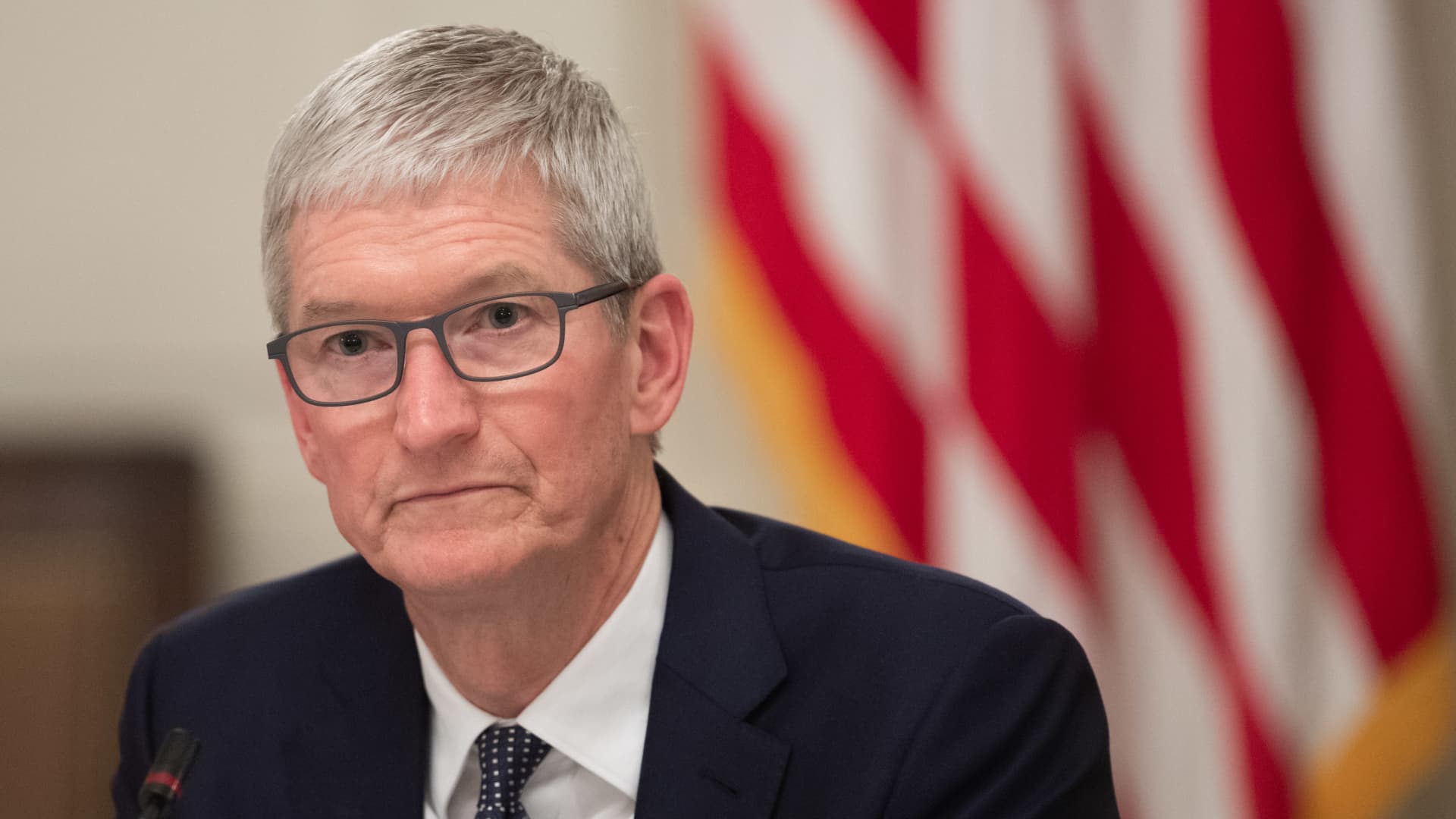
Apple CEO Tim Cook attends the first meeting of the American Workforce Policy Advisory Board with then-President Donald Trump in the State Dining Room of the White House in Washington, D.C., on March 6, 2019.
Saul Loeb | AFP | Getty Images
The U.S. Department of Justice is readying an antitrust case against Apple that could come as soon as March, Bloomberg reported Tuesday, pending signoff from senior officials within the DOJ’s antitrust division.
DOJ and Apple attorneys have met three times over a potential suit, Bloomberg reported, citing people familiar with the matter. The case would reportedly focus on software and hardware limitations on iPhones and iPads that impede competitive services.
Both the DOJ Antitrust division, under Assistant Attorney General Jonathan Kanter, and the Federal Trade Commission, under Chair Lina Khan, have taken related action against major tech companies. Both enforcers have pursued cases against Google parent Alphabet, and the FTC has done so against Amazon and Meta.
DOJ attorneys hope to file the suit within the first quarter, the people familiar told Bloomberg, capping a probe that has been underway since 2019.
Apple has been scrutinized and even sued over allegedly anticompetitive practices. Music streaming platform Spotify lodged a competition complaint with the European Union in 2019, alleging that Apple’s then-mandatory in-app payments system violated antitrust law.
Apple has also been mired in civil litigation filed by Fortnite maker Epic Games, hinging on whether Apple’s App Store rules violated federal antitrust statutes. The Supreme Court earlier this week declined to hear appeals from both companies, concluding the protracted litigation with a mixed victory for Apple and Epic.
A federal judge concluded in 2021 that Apple violated a California law but did not run afoul of federal antitrust statutes. The Ninth Circuit Court of Appeals largely upheld that decision, prompting two different appeals from each of the companies. Still, following the Supreme Court’s decision to decline hearing appeals, Apple changed its rules to allow app makers to link customers to a non-Apple billing solution.
The Justice Department declined to comment. Apple did not immediately respond to CNBC’s request for comment.
Don’t miss these stories from CNBC PRO:




